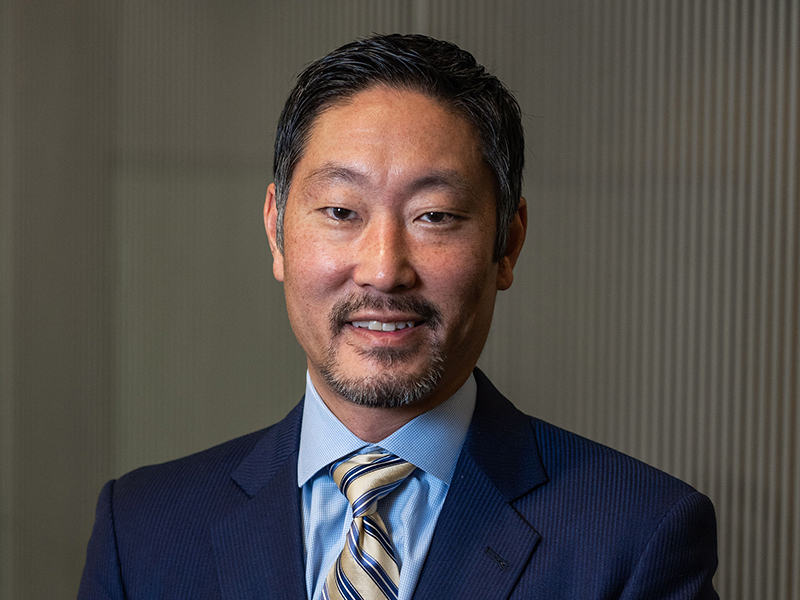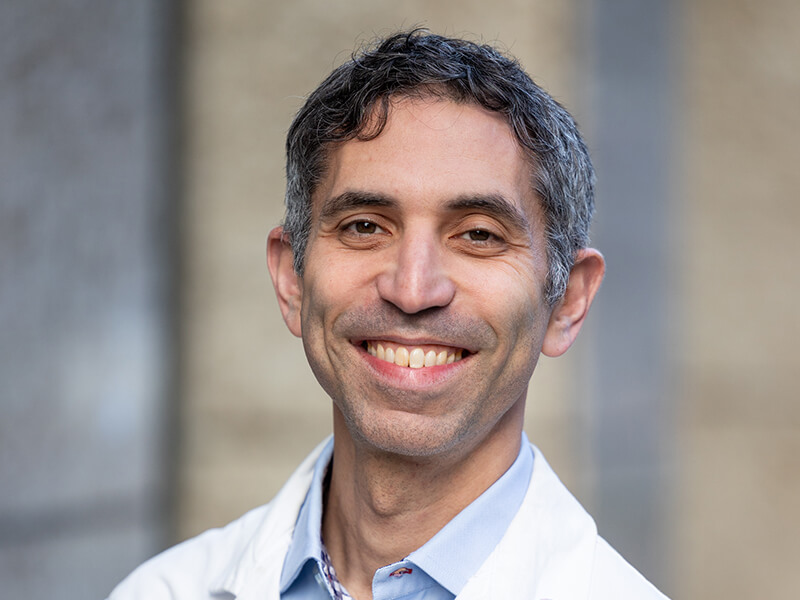Leading the way in moyamoya treatment
At UW Medicine, patients with Moyamoya, a rare and complex cerebrovascular disorder, find hope and healing. Our team of specialists is at the forefront of treating Moyamoya, employing the latest research and advanced surgical techniques. We understand the unique challenges of this condition and provide personalized care plans to manage and treat it effectively, ensuring our patients receive the best possible care. At UW Medicine, we're not just treating a condition; we're caring for individuals, offering expertise and hope every step of the way.
What is moyamoya disease?
Moyamoya disease is a rare condition that affects your brain’s blood vessels. Some of the larger blood vessels at the base of your brain, such as the carotid arteries, begin to narrow. As these blood vessels continue to narrow, your brain will create new ones to replace them. However, the new "backup" blood vessels are often tiny and fragile. They can rupture and cause a brain hemorrhage (also known as a brain bleed or bleeding in your brain). Or, if any narrowed blood vessels close completely — preventing blood from reaching your brain — you could have a stroke.
When viewed on a brain scan, your new backup blood vessels often look like wispy curls of smoke. That’s how the disease got its name: the Japanese word “moyamoya” means “puff of smoke.” There isn't a cure for moyamoya disease. But there are effective surgical treatments that can improve your symptoms and decrease your risk of life-threatening complications.
When do symptoms require emergency treatment?
Strokes, TIAs (mini strokes) and brain bleeds can happen quickly in people with moyamoya disease. And these conditions share some of the same sudden symptoms, including:
- Confusion
- Difficulty speaking or understanding speech
- Loss of coordination, including problems walking
- Nausea or vomiting
- Numbness or weakness in the face, arm or leg, especially on one side of the body
- Severe headache
- Vision changes, including vision loss or blurred vision
If you or a loved one has any of these symptoms, call 911 right away. Even though a TIA won’t cause permanent brain damage, a stroke or brain bleed can. Doctors must treat these conditions right away to prevent death or disability.
Meet with our team of experts
Getting care for moyamoya disease at UW Medicine
Even though moyamoya disease is rare, expert care is available — and you'll find it right here at UW Medicine. When you choose our team for moyamoya disease care, you get a lifelong partner who will monitor and manage your condition. We'll conduct regular brain scans to keep an eye on your blood vessels. And if we identify areas of concern, we can treat those blood vessels. Our neurosurgeons routinely perform delicate operations that can redirect (and improve) blood flow in your brain.
For families seeking the best medical care
If you or a loved one has been diagnosed with moyamoya disease, you're probably worried about how this condition will affect your brain health. Moyamoya disease is a rare, progressive disease that can occur in children and adults. For parents or guardians of children who've been diagnosed, this is a treatable condition and early intervention is important.
The earlier a patient is diagnosed and treated, the better the chances are of having a normal life expectancy. Without treatment, patients may suffer from cognitive and neurologic decline due to repeated strokes and hemorrhaging. At UW Medicine, our neurologists and neurosurgeons specialize in revascularization surgery for moyamoya disease. We are here to help.
Our clinic location
Harborview Medical Center
Neurological Surgery Clinic
908 Jefferson St, Ninth & Jefferson Building, 5th Floor, Seattle, WA 98014




